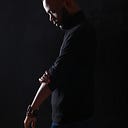A Birthday Present — Sylvia Plath — IB English Literature (2015)
Sylvia Plath’s ‘A Birthday Present’ is a critique of a housewife’s suffering existence and a depiction of the poet’s interpersonal troubles before she committed suicide.
The voice in this poem, a housewife, feels intimidated and eclipsed by this other woman that her husband has had an affair with, inquiring about her “breasts” and whether she has “edges” in the second line of the first stanza. The physique of this other woman is clearly a concern to the wife and given that this poem was written during the period of the breakup between Plath and her husband, Ted Hughes, these were perhaps some of her own concerns when envisioning the woman she suspected him to be having an affair with, but that is only so if we are to read this poem autobiographically.
In line 4, the speaker expresses that “When [she is] quiet at [her] cooking [she feels] it looking”, the speaker is threatened by this mysterious object. In line 6, the speaker gives the object a voice and imagines her as aloof and condescending towards her, illustrated by the figure’s sarcastic tone in line 8 where she repeatedly remarks upon the wife’s adherence to “rules”, that is, her duties as a housewife and perhaps the commitment she continues to have with a man who is no longer faithful to her. The fact that all of this action takes place within a the confines of a kitchen exacerbates the intensity of the action. We — the readers — feel in awkward proximity to this unfathomable object that fires contemptuous remarks at the speaker.
The wife makes several allusions to her husband’s infidelity, and though Hughes is not mentioned expressly, an autobiographical reading would suggest that the poet is directing these words at him. In line 27, she affirms that the husband will not tell her the truth saying “I know you will not give it to me, you are terrified” and that “the world will go up in a shriek, and your head with it, bossed, brazen, an antique shield”. The wife is conscious that her husband is afraid to be revealed and his need to retain a good reputation is reinforced by the consonance “bossed, brazen”, which conveys the husband’s obsession with keeping the “antique shield” (a reference to the facade that he using to mask his affair) intact.
In line 22, the speaker discourages her husband from being “ashamed” and in line 24 she proposes that the two “sit down to it, one on either side…” to discuss the issue. The wife attempts to comfort her husband, assuring him that she will keep news of his affair secret, which is accentuated by the image of the two sitting down and addressing the matter in a conciliatory manner. In line 13, the speaker even exclaims that “[she does not] want much of a present anyway” and in line 23 expresses that “[she is] ready for enormity”. Here, Plath makes a clever analogy between the reaction of receiving this news of her husband’s adultery with that of receiving a gift and once again reassures her husband that she will react discretely. In line 16, where the speaker remarks upon “veils” that shimmer like “curtains”, it is clear that not knowing the truth about her husband’s infidelity is overwhelming for her, which is heightened by the fact that these “veils” – a symbol of deceit - are impeding the speaker from seeing the truth clearly.
The poem also comprises a number of references to death and where it becomes more overtly autobiographical is when Plath makes allusions to events that occurred in her own life such as her first attempted suicide. Knowing the truth about her husband’s infidelity will arguably provide her with the justification she needs to put an end to her life. In line 12 she exclaims that “[she] would not mind if [the gift] were bones”, in line 18 she exclaims “O ivory!” and in the following line she asserts that “it must be a tusk there, a ghost column”. The skeletal imagery, which is commonly used to symbolise death, reflects the speaker’s impassivity towards death, and the modal “would” in the twelfth line confirms this.
Much like in her earlier works, Plath portrays death as spellbinding. She compares “death” and “ivory”, a natural material that is sought after for its commercial value and is associated with death given e.g. its bony texture and the death caused by ivory trading, which demonstrates how enthralled she is by its very prospect. In the same line she states that this obscure object is “glittering with dead breath”. Here, the cheerful radiance created by this “glittering” object suggests that the speaker is enchanted by it despite the stench it emits, which suggests that her fascination with the object stems from its death-like properties. Furthermore, the poet makes an allusion to the birth of a child when comparing this paradoxically enchanting object with “white babies’ bedding”, as if to say that this impenetrable object is a sort of gateway into another world marked by heavenly “glittering” and bliss.
The religious aspect of this poem also pays glorious tribute to death. In line 26, she says “let us eat our last supper at it”, and if we are to read this poem as being an autobiographical account of the poet’s own desire for self-destruction or suicide, this allusion to the Lord’s Supper - the last meal before Jesus underwent his crucifixion and claimed divine victory - portrays the speaker’s own last meal with her husband before she is to receive this “present” or similarly commit suicide, as a triumphant escape. In line 25, she further remarks upon the object’s appearance commenting upon “the glaze” and “mirror variety of it”. The object gleams like a mirror and seems to reflect the desires of the speaker, the desire for it to be something that will wholly liberate her.
